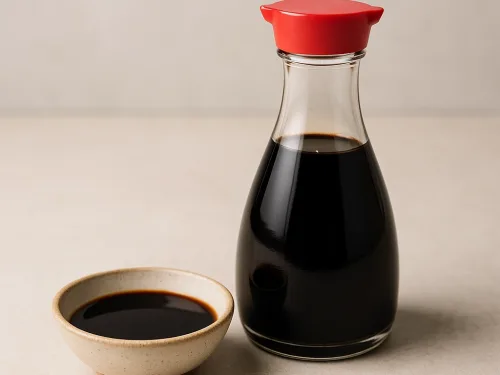What is it?
Shoyu is a fermented sauce that adds umami and saltiness to dishes. It is an ancient Japanese flavoring, similar to Chinese soy sauce, but with its own character.Use in the kitchen
- Base for shoyu ramen
- As a marinade for meat and fish
- In dipping sauces for sushi, sashimi and gyoza
- As a seasoning in soups and wok dishes
Flavor Profile
Salty, savory, rich in umami, sometimes slightly sweet or malty depending on the variety.Variants / Differences
- Koikuchi shoyu: the most commonly used, dark soy sauce
- Usukuchi shoyu: light, saltier variety
- Tamari: gluten-free, with full soy flavor
- Saishikomi shoyu: double fermented, complex and rich
- Shiro shoyu: light color, mild flavor
